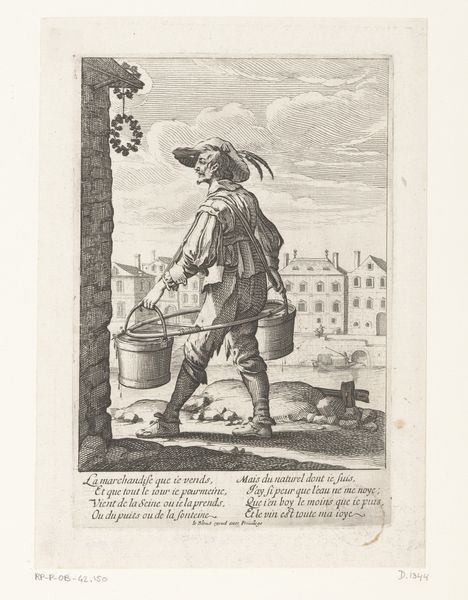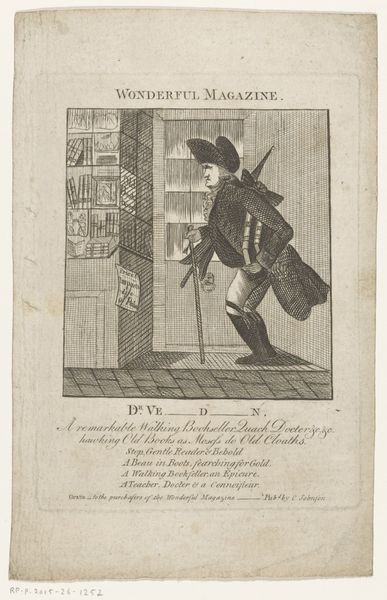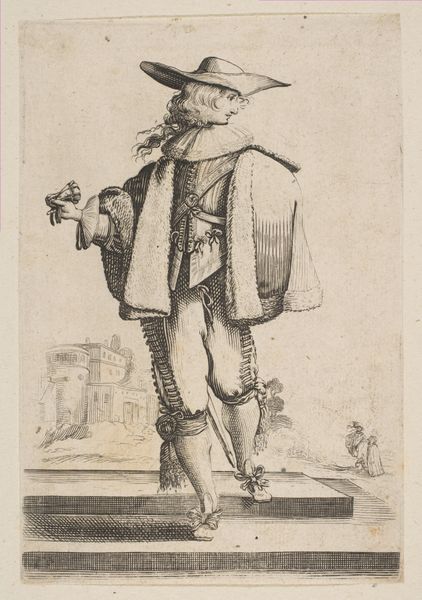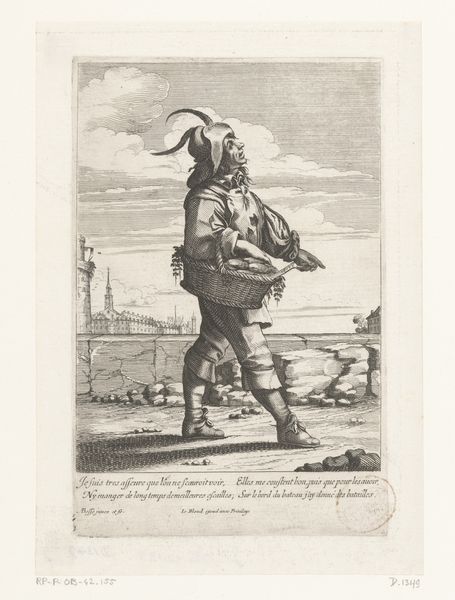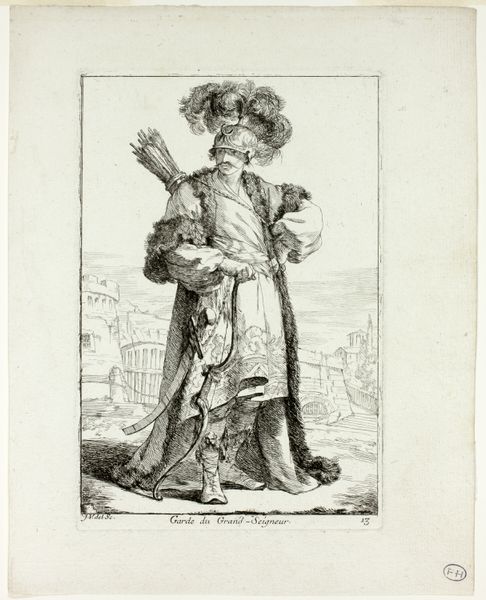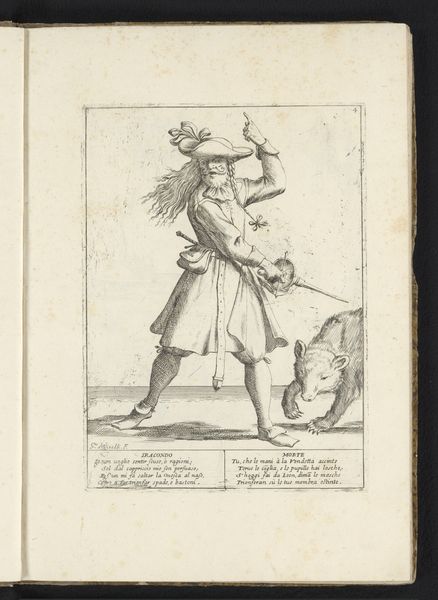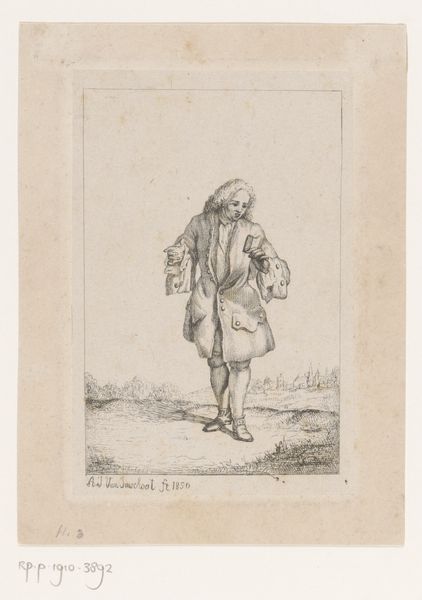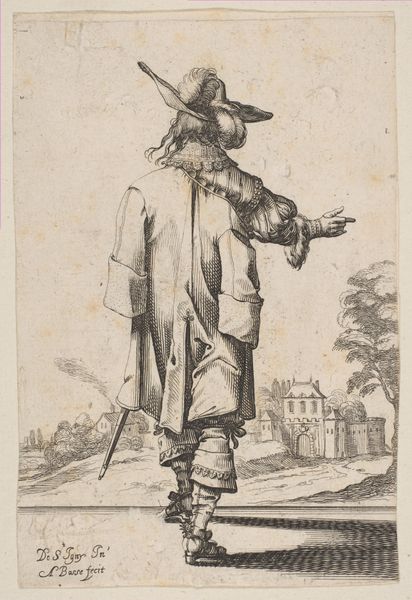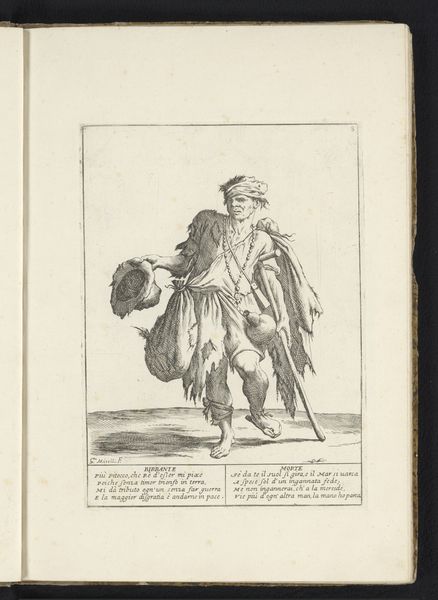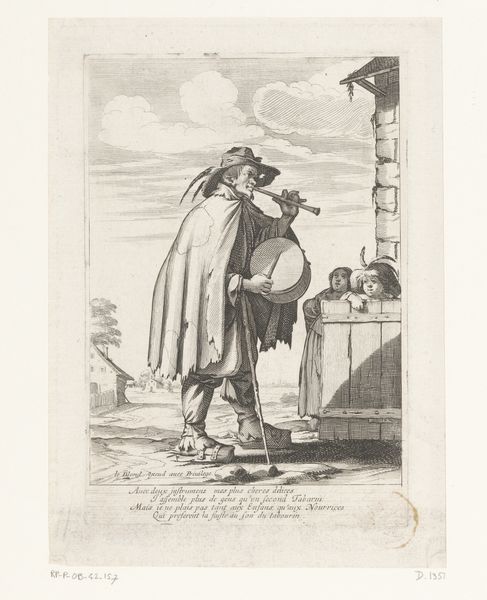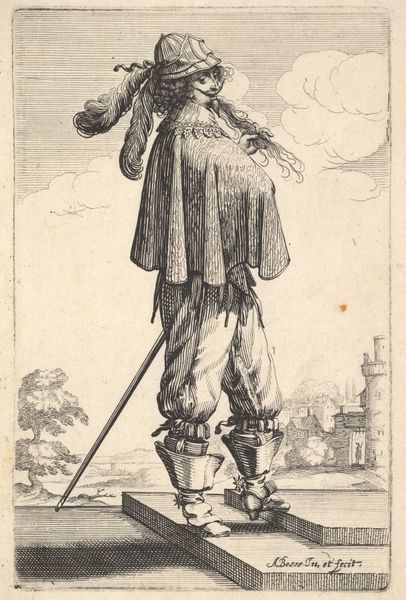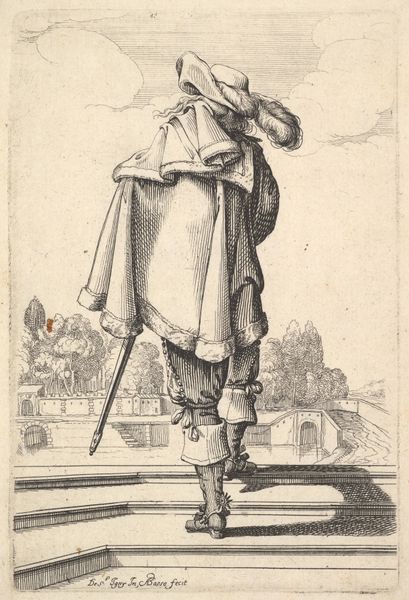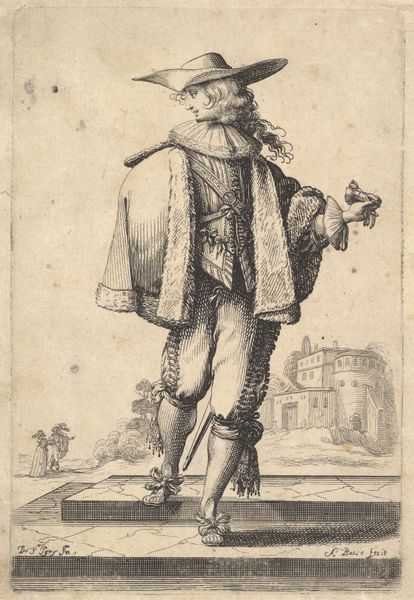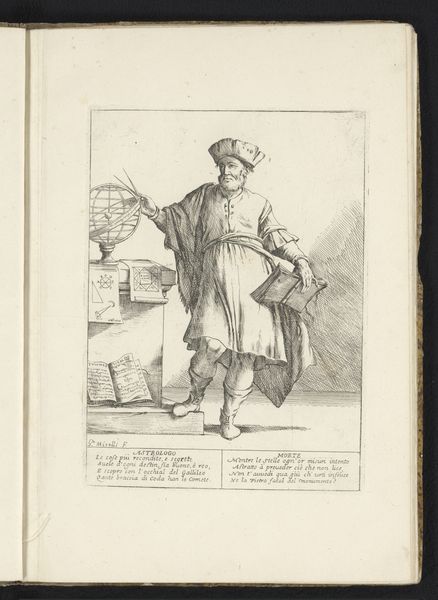
print, engraving
#
narrative-art
#
baroque
# print
#
landscape
#
figuration
#
genre-painting
#
engraving
Dimensions: height 214 mm, width 145 mm
Copyright: Rijks Museum: Open Domain
This is "Kruier," an engraving by Abraham Bosse, likely created in the mid-17th century. At first glance, it's the composition that strikes you: a robust figure dominating the foreground, with a cityscape dissolving into the distance. The man, burdened with a towering stack on his back, engages us with an outstretched hand, inviting contemplation. Bosse's handling of line is exquisite. Note how the density of lines in the figure's clothing creates depth, compared to the more sparse, linear treatment of the buildings. This contrast isn't merely descriptive; it creates a semiotic hierarchy, emphasizing the human figure as the primary signifier of the artwork’s meaning. The structure of the image itself prompts questions. Is it a social commentary, a study in human endurance, or perhaps, a symbolic representation of labour? Bosse's formal choices, such as the figure's exaggerated scale relative to the background, challenge fixed meanings and invite us to decode the cultural values embedded within this seemingly simple depiction of a worker.
Comments
No comments
Be the first to comment and join the conversation on the ultimate creative platform.
